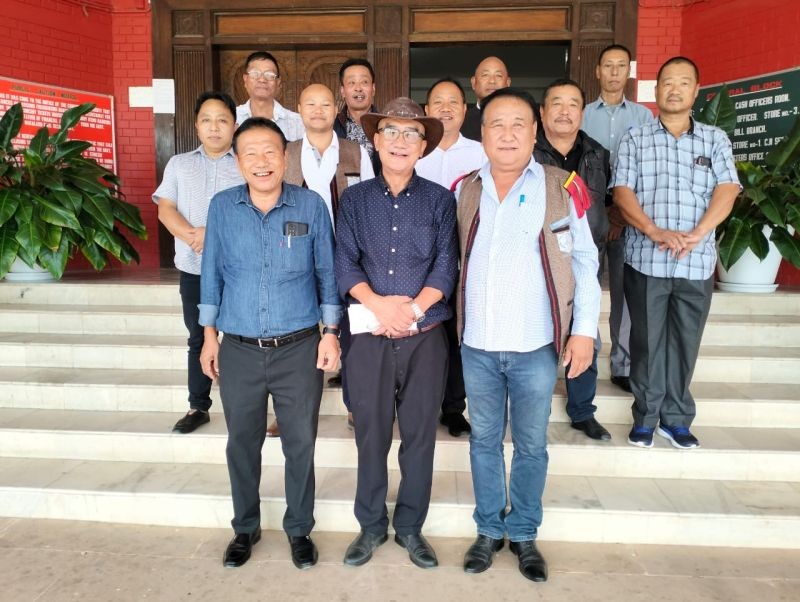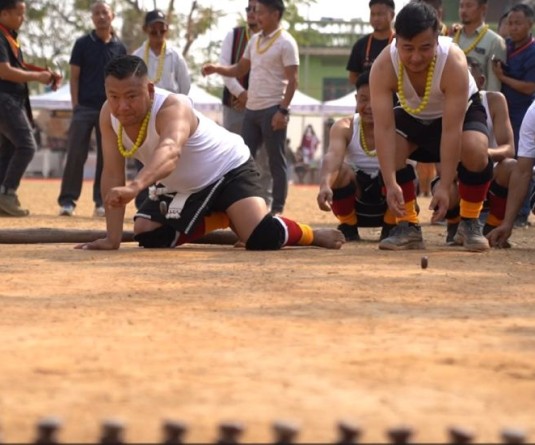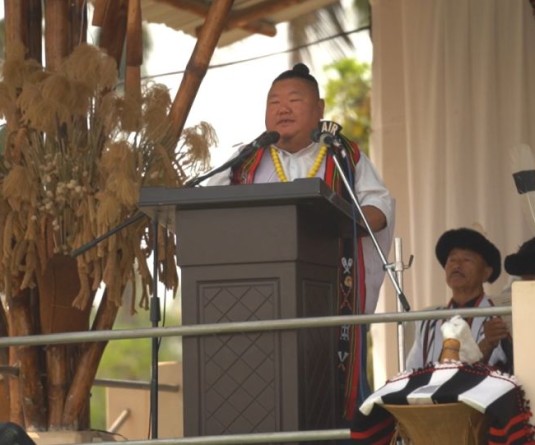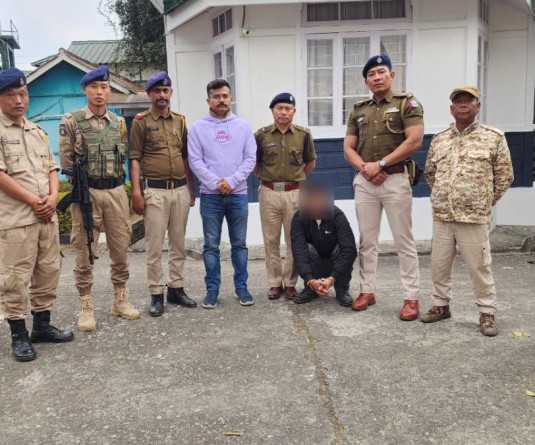
• Calls for deletion of provisions on land and building tax; ownership
• Reiterates opposition to 33% women reservation, now suggest nomination
• Say any issues over land not ‘matter for Naga Women’
Dimapur, September 19 (MExN): Three urban local bodies (ULBs) in Nagaland have reiterated the demand for “amendment/review of the Nagaland Municipal Act, 2001” (the Act) while highlighting Sections or Clauses, which they said infringes upon rights provided under Article 371 (A) of the Constitution of India.
The Association of Kohima Municipal Ward Panchayat (AKMWP), All Ward Union Mokokchung Town (AWUMT) and the Dimapur Urban Council Chairmen Federation (DUCCF) were responding to clarification sought by the Government of Nagaland on July 27 as to “Which are the particular Sections, Clause(s) that infringes Article 371 (A) of the Indian Constitution” in reference to the amendment of the Act.
In a rejoinder to the Principal Secretary, Municipal Affairs Department & Urban Development Nagaland, the three ULBs informed that thereafter they held series of consultative meetings with various organisations, stakeholders and tribal bodies for opinions and suggestions.
Accordingly, the trio urged the State Government for amendment or review those Sections or Clause(s) of the said Act before ULB election is conducted, reiterating a memorandum submitted to on July 22.
No to taxation
Among others, the three ULBs called for deleting Section 120 (1) (a) of the Act dealing with “tax on land and building” and those provisions relating to ownership of land and building.
Specifically, it included six clauses dealing with tax on land and building and the power of municipality to levy any tax.
Further, it also called for amendment of some clauses under Section 123 (2) dealing with rate of such taxes and Section 125 on vacant land annual value.
Section 144 & 182 dealing with the recovery of taxes on the land and building “by attachment of land and building of the occupier for failure to pay tax” and Section 194 (1) on defaulting tax needs to be amended, the ULBs pointed out.
In addition, they contended that Section 215-220 pertaining to tube wells, wells,spring and otherwater-course were in “total contravention of traditional Naga customary procedures, social practices and ownership of land and its resources,” and hence, directly infringes upon Article 371-A.
Absolute owners of land
Accordingly, the 3 ULBs asserted that if the aforesaid sections or provisions are implemented, the Naga people who are the “absolute owners of their land shall become landless,” an infringement to the protection guaranteed to the Naga people under Article 371-A.
‘The absolute right/protection given under Article 371-A of the Constitution of India covers the entire State of Nagaland without any classification on rural and urban areas,’ they argued.
It was further pointed out that the use of “Omission” or “Omitted” with regard to “Tax on land and building” during the 3rd Amendment of the Act in 2016 was “ambiguity and cryptic proposition” and thus, should be rectified by a word “Deleted.”
The ULBs further cited the fundamental principal of social justice as protected under Article 371-A on delivering justice to Naga people.
To buttress the claims, among others, it was highlighted that customs and usages have been the sole means by which any kind of disputes were adjudicated in the Naga society.
This system of settlement of disputes has been continued by enacting legislations exempting the application of technical and procedural laws enforced in other parts of the country, the ULBs maintained, further noting that the Constitution of India provided special provisions recognising the whole realm of Naga customary law.
While the growth of society requires change and some customs and practices of the Nagas may conflict with the formal law and other provisions of the Constitution and therefore, the Government organs of the State have been casted with special responsibility to “endeavour and understand Naga customary laws, usages and practices since time immemorial,” the trio stated.
The method of adjudication of disputes the and delivery of social justice plays a significant role in management of social harmony and resolution of conflicts and the Nagas have been following customs and usages which are simple and just based on good conscience, they said.
By the Constitution (Thirteenth Amendment) Act,1962, the whole realm and the status of the Naga customary laws was constitutionally recognised and authority of the State has been strengthened, they added.
Can State Govt decide on Social Reform?
Stating that the proposition set-out in Article 371-A (1) (a) gives the Legislative Assembly the power to decide on application of Acts of Parliament in the State, the three ULBs questioned whether it is for the Legislature to decide what constitutes ‘Social Reform.’
In a democracy governed by rule of law, gradual progressive change should be brought about. Making law or amendment to a law is a slow process and the Legislature attempts to remedy where the need is felt most acute, they said.
In this connection, they argued that gradual progressive change should be brought about in a democracy governed by rule of law and it would be “inexpedient and incorrect to think that all laws have to be made uniformly applicable to all people at a same time.”
They further contended that Judicial intervention in such grey areas such as tribal legislative and policy making process may put the judiciary in a difficult position for giving an adversarial judgment for it may lead to social chaos and frustration of the order.
“Therefore, the legislative policy has to be applied carefully after studying and understanding the fabric of the society.”
The Constitution of India has enshrined the Naga people with special status giving customary freedom in the administration of justice and whereas, such Constitutional status is not available to everyone in the country, they stated.
The Article 371-A of the Constitution of India, therefore has cast a special responsibility upon the legislators of the State in making policy and decisions that would not offend the customary rights of the people nor infringe other fundamental provisions of the Constitution, it was highlighted.
“The policy makers and administrators should be vigilant in understanding the social fabric of the society in implementation of any law or policy.”
Hence, the three Associations called upon the State Government to activate the constituted Committee in 2017 to “amend/revise the 20 years old Nagaland Municipal Act, 2001 with specific reference to the ‘Tax on land & building’ including the proposed 33% Women Reservation.”
If not, the three ULBs cautioned that it would set a precedent “detrimental to the rights of the Naga people as enshrined in the Indian Constitution.”
One can safely say that the objectionable points raised in the protest against the ULB election earlier were linked to one another as land, taxation and women reservation are related to Article 371-A, they reminded.
Elaborating the arguments furthers, the three ULBs asserted that while considering the “gender equality vis-a-vis Customary laws, the Naga customary law does not allow women to equally participate in the political and socio-economic decision making.”
The insertion of Rule 23A for reservation of one-third seats for women in the Municipal elections in the Act as mandated by Article 243T of the Constitution of India was vigorously protested by various Tribal Bodies and Organizations leading to burning of government buildings and properties and loss if lives forcing the State to withhold the Municipal election by a cabinet notification, they reminded.
Accordingly, with regard to reservation of seats for women in the Municipality, the three ULBs suggested that State government may formulate a policy for women nominee(s) with “voting right in as much as deletion of the provisions provided in the said Act on the Tax on land & buildings and nomination of women in the Municipality is the aspiration and demands of the Nagas.”
Fears women’s decisions on land & taxation
Meanwhile, while noting that there is no relation between land and building taxation and women reservation, the three ULBs argued that there are indirect correlations between the two drawn by the people; stating their opposition to reservation in essence.
“In Naga society, land is never inherited by women because of the fact that inheritance flows exclusively through the male line and therefore, any issues over land are not a matter for Naga women,” they argued.
“If the ULB elections proceed without resistance, it is the women who are part of the policy making to tax the Nagas and further take important decisions on land and taxation.”
“Because of Article 371-A, Nagas can make laws on their own land including laws on taxation, resources, women and people,” they asserted.
Accordingly, the trio noted that these points shall go against the Naga customs and traditions at many levels, and linked the protest against ULBs elections in the past to the introduction of “Women's political culture.”
“For the Nagas, Article 371-A is related to both territory and the people, for Nagas the land and all resources belong to the people. All resources include people and women and accordingly, a law deciding on the political rights of the Naga women rest with the people,” they asserted.
Considering the facts and circumstances, the State government is requested to review/amend the Nagaland Municipal Act, 2001 and thereafter, conduct the municipal election, stated the rejoinder appended by Thajao Sekhose, President AKMWP; Tsenthungo Nyamo, President DUCCF; and Limanungsang, President AWUMT.
Till the Act is reviewed/amended, the Associations shall not compromise and will not allow or participate in the election process of the municipality in the State, they added.






